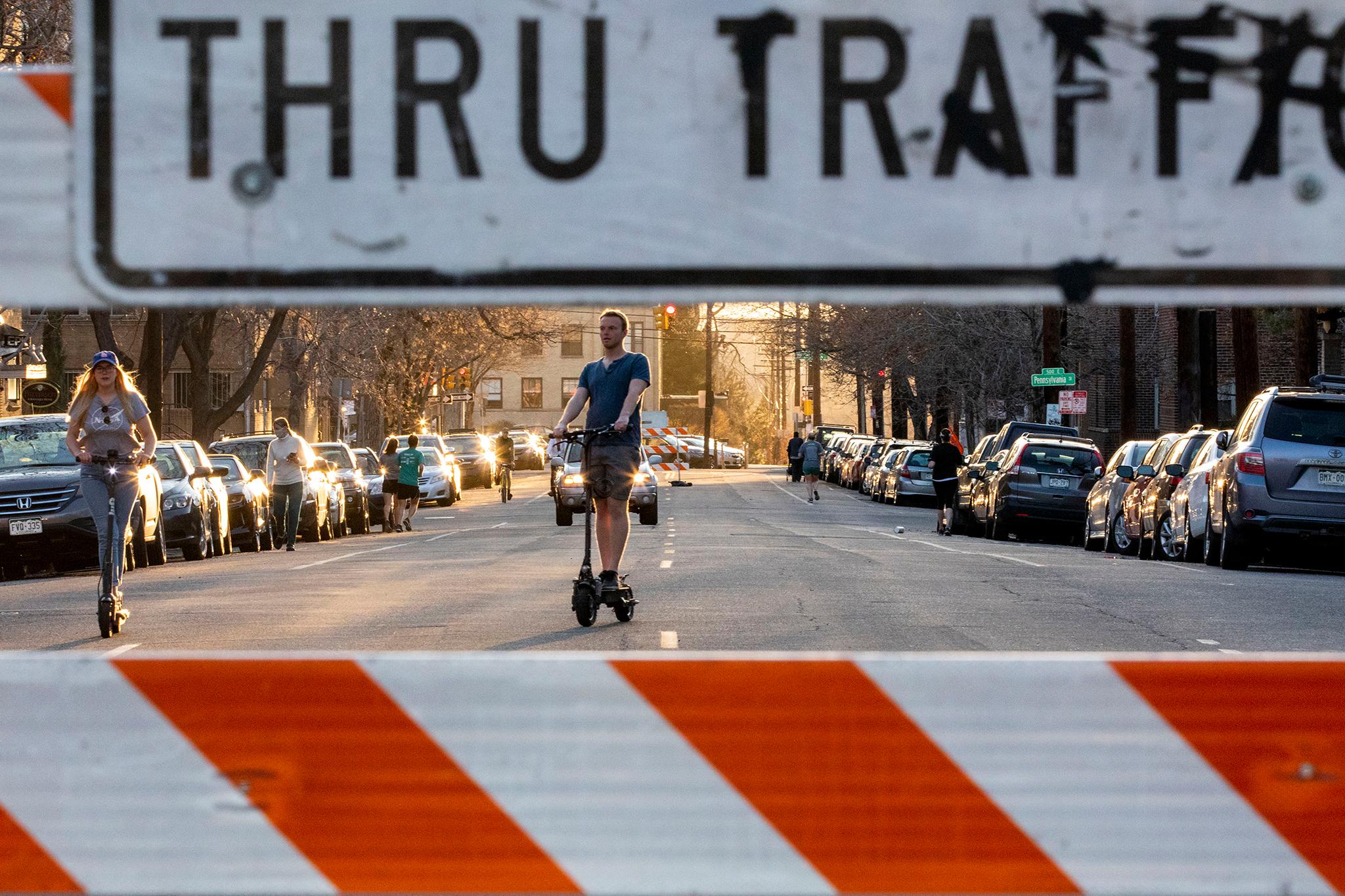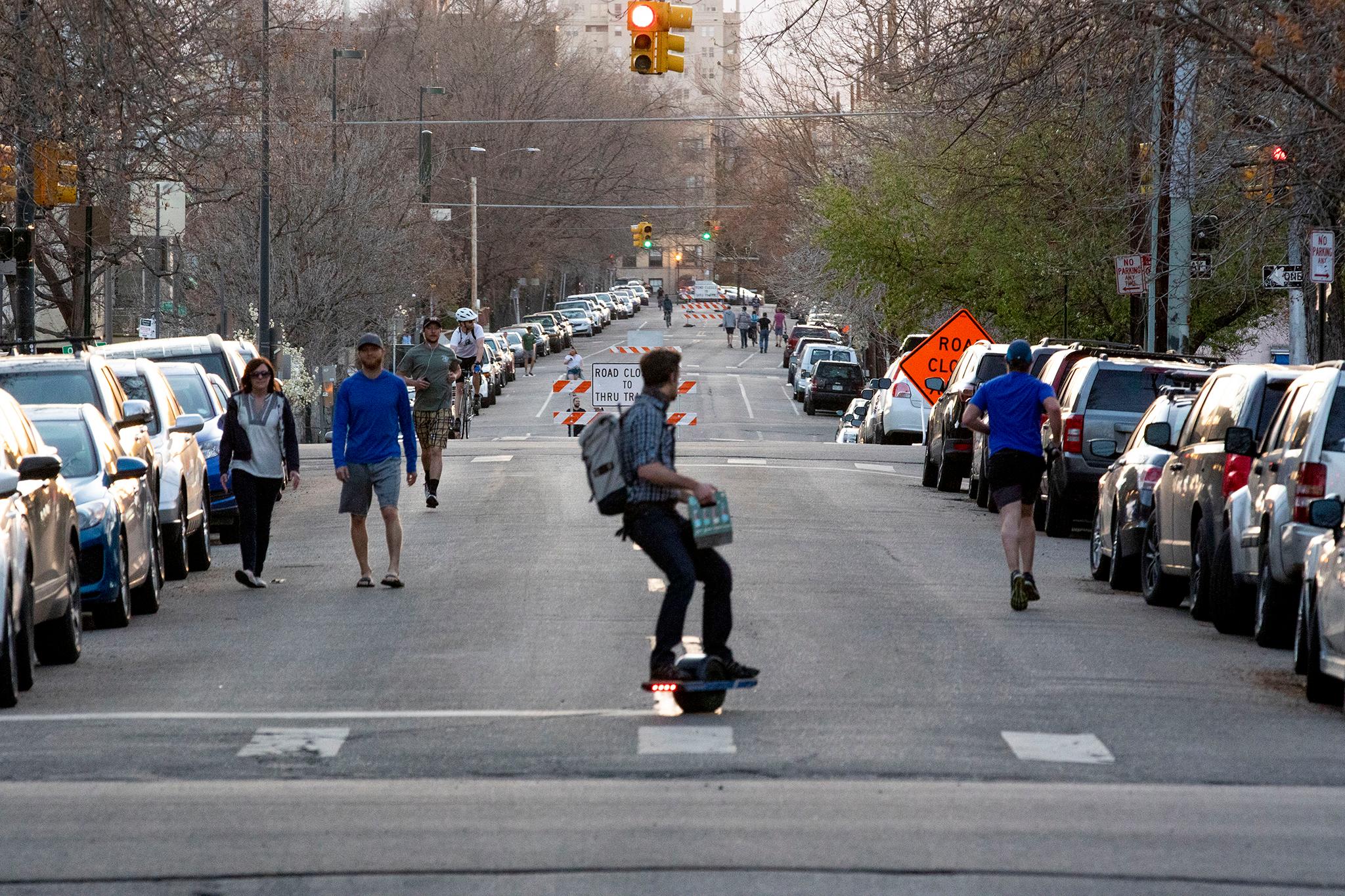Back in the scary early days of the pandemic, the city and county of Denver did something unusual: It made a quick decision.
Denverites had flooded into parks and sidewalks looking for open space, so the city gave them more by barricading more than seven miles of streets to most cars and turning them over to people starved for fresh air.
"We did this all in a matter of one week," Denver Office of Transportation and Infrastructure City Planner James Decker told a Denver Inter-Neighborhood Cooperation meeting earlier this summer.
Those barricaded streets were hugely popular, Decker said, attracting more than 10,000 people per day and cutting vehicular traffic by more than three-quarters. The roster of shared streets fluctuated through the first pandemic year before the city finally hauled off temporary barriers and the cars returned toward the end of summer 2021.
While street safety advocates have mourned their passing, city staffers now say they are working on a plan to resurrect shared streets permanently. And they're trying to build on the opportunity the pandemic created.
"If we were to have tried this prior to the pandemic, it would've been relatively small -- or frankly, wouldn't have happened at all," Decker said. "What typically happens when we try to be really innovative and big thinkers is we get a lot of noisy folks -- the folks that hate change and are a little scared of something like this."
As we know all too well, the spring of 2020 was anything but typical. And that allowed the city to act quickly, Decker said.
"In this instance, we didn't talk to the community," he said. "We just went ahead and did it."
City staffers now hope Denverites' memories of those shared streets are positive and clear enough to support their permanent return. The city is collecting public feedback to help guide deeper planning on locations that could host permanent shared streets in the future. That entire process will take eight to nine months, Decker said in an email.
"We want to make sure we do have a representative audience for the whole of Denver," Decker told attendees at the neighborhood cooperation meeting. "But we also want to make sure we do get some folks that really know what they're talking about, that maybe rode one of these, that enjoy them and support them. So we can have a really loud voice to tell the Department of Transportation [and Infrastructure] and City Hall that we need a lot of funding and a lot of resources."

Money will be key to making new shared streets feel less like the thrown-together-in-a-week 2020-2021 program and more like the "transformative set of projects" they could be, Decker said. His presentation to the neighborhood cooperation meeting included a picture of a street in Germany where pedestrians and cyclists appeared to have more space than cars.
"That would be lovely to have in Denver," he said. "The problem with these is this takes many, many years and tens of millions of dollars to do. So this is something we're going to create and move toward in Denver, but we may get a couple of blocks of this every few years."
So Denver will also push for quicker changes that might warm up some skeptics of bigger street transformations, Decker said. His presentation drew support from meeting attendees and some probing questions about why it's taken the city so long to get to this point.
"I think we're hearing a lot of appetite here," said Inter-Neighborhood Cooperation Transportation Committee Chair Joel Noble.














